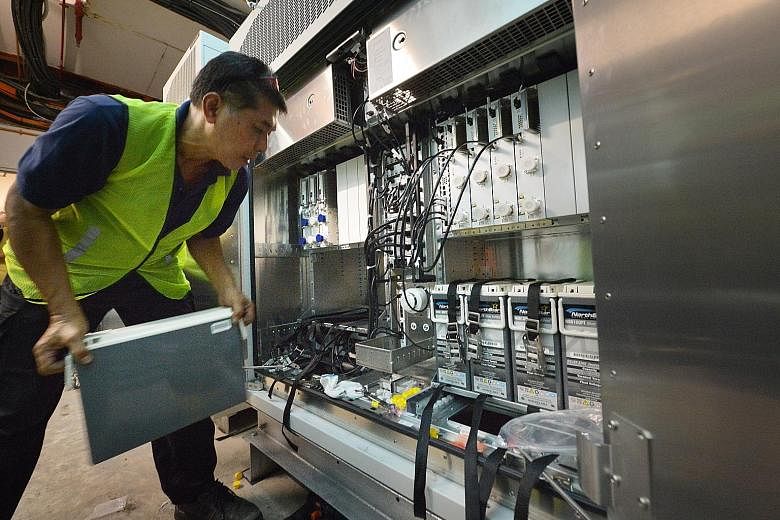The fight for rooftop space has intensified with the entry of a fourth telco in Singapore and an unexpected contender: national broadcaster Mediacorp.
Mediacorp wants to benefit from a new law introduced in February that requires building owners to provide rent-free rooftop space for mobile equipment.
The law was made in anticipation of rising mobile connectivity demands as Singapore moves to become a Smart Nation, and the entry of fourth telco TPG Telecom. Previously, telcos had to pay rent for rooftop space.
Mediacorp, responding to a public consultation by the Infocomm Media Development Authority (IMDA), said it hoped to benefit from the new law that is being worked into the current building code - dubbed the Code of Practice for Info-communication Facilities in Buildings.
The public broadcaster, which is rolling out its digital TV free-to-air network here, was concerned about high rental costs as well as the lack of space for installing its equipment to allow homes to receive digital TV signals.
"We face many of the same challenges that (telcos) face in accessing buildings and rooftops to install the necessary equipment. Unfortunately, we do not enjoy the regulatory entitlements granted to (telcos)," it said.
Concerned about signal interference, a spokesman at telco M1 told The Straits Times that more rooftop space must be provided in order to separate digital TV transmitters from telcos' antennas.
-
$15k-$270k
The range of fines that telcos could be charged for every 30 minutes of outage, if there is a disruption of 5 per cent or more of a telco's base stations
Meanwhile, telco Singtel said it is "gravely concerned" that the minimum amount of space for telco equipment has not been increased under the revised building code - despite the entry of TPG.
With TPG vying for the same limited space, telcos could end up continuing to pay the high rents that the new building code seeks to eliminate, warned Singtel.
Not surprisingly, TPG requested that IMDA split the rent-free space equally between all four telcos.
The three telcos and StarHub also asked that IMDA explicitly prioritise mobile equipment installation and servicing, above building owners' plans for solar panels and rooftop gardens, in the revised building code.
"Mobile equipment needs to be treated as a priority service, rather than an unimportant service jostling for space among solar panels and rooftop gardens," said StarHub in its feedback to IMDA.
All four telcos spoke up as well against high escort fees that building owners charge for accessing on-site mobile equipment.
StarHub said such fees could go up to hundreds of dollars for each individual access request.
M1 noted that some building owners do not have sufficient resources to manage telcos' equipment access requests, resulting in service restoration delays.
"For access to (Housing Board) rooftops, the unavailability of security escorts could result in access being denied or delayed," M1 pointed out.
Singtel, StarHub and M1 suggested that IMDA oblige building owners to give telcos immediate access to their equipment in the event of an emergency such as a mobile service disruption. For buildings without round-the-clock security - including HDB blocks - the notice period could be one hour, suggested some telcos.
The telcos stressed that equipment access is needed to meet the high service quality standards imposed by IMDA, as spelt out in the authority's Telecom Service Resiliency Code.
For instance, a disruption of 5 per cent or more of a telco's base stations could attract a fine ranging from $15,000 to $270,000 for every 30 minutes of outage.
The two-month consultation closed on June 21.


